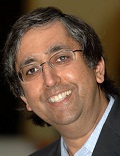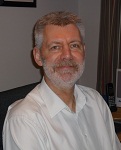Please take a look at the following articles which were the Top Ten most accessed during January, February and March!
Minisci reactions: Versatile CH-functionalizations for medicinal chemists
Matthew A. J. Duncton
Med. Chem. Commun., 2011,2, 1135-1161
DOI: 10.1039/c1md00134e
Amidines bearing benzofuroxan or benzimidazole 1,3-dioxide core scaffolds as Trypanosoma cruzi-inhibitors: structural basis for their interactions with cruzipain
Alicia Merlino, Diego Benitez, Nuria E. Campillo, Juan A. Páez, Luzineide W. Tinoco, Mercedes González and Hugo Cerecetto
Med. Chem. Commun., 2012,3, 90-101
DOI: 10.1039/c1md00223f
Discovery of BET bromodomain inhibitors and their role in target validation
S. Müller and S. Knapp
Med. Chem. Commun., 2014,5, 288-296
DOI: 10.1039/c3md00291h
Metabolism-guided drug design
Antonia F. Stepan, Vincent Mascitti, Kevin Beaumont and Amit S. Kalgutkar
Med. Chem. Commun., 2013,4, 631-652
DOI: 10.1039/c2md20317k
3-Hydroxylation of the polycyclic tetramate macrolactam in the biosynthesis of antifungal HSAF from Lysobacter enzymogenes C3
Yaoyao Li, Justin Huffman, Yu Li, Liangcheng Du and Yuemao Shen
Med. Chem. Commun., 2012,3, 982-986
DOI: 10.1039/c2md20026k
Affinity-based target identification for bioactive small molecules
Makoto Kawatani and Hiroyuki Osada
Med. Chem. Commun., 2014,5, 277-287
DOI: 10.1039/c3md00276d
Fragment growing to retain or alter the selectivity of anchored kinase hinge-binding fragments
Charlotte E. Allen, Amanda J. Welford, Thomas P. Matthews, John J. Caldwell and Ian Collins
Med. Chem. Commun., 2014,5, 180-185
DOI: 10.1039/c3md00308f
Ambient mass spectrometry technologies for the detection of falsified drugs
María J. Culzoni, Prabha Dwivedi, Michael D. Green, Paul N. Newton and Facundo M. Fernández
Med. Chem. Commun., 2014,5, 9-19
DOI: 10.1039/c3md00235g
Microwave-assisted synthesis of N-heterocycles in medicinal chemistry
Davide Garella, Emily Borretto, Antonella Di Stilo, Katia Martina, Giancarlo Cravotto and Pedro Cintas
Med. Chem. Commun., 2013,4, 1323-1343
DOI: 10.1039/c3md00152k
Target validation using in-cell small molecule clickable imaging probes
Brahma Ghosh and Lyn H. Jones
Med. Chem. Commun., 2014,5, 247-254
DOI: 10.1039/c3md00277b
If you have any thoughts or comments on any of these articles, please leave these in the comment box below!
Fancy submitting an article to MedChemComm? Submit to us here today!











![AP39 a novel mitochondria-targeted H2S donor molecule AP39 [(10-oxo-10-(4-(3-thioxo-3H-1,2-dithiol-5-yl)- phenoxy)decyl)triphenylphosphonium bromide] a mitochondria-targeted hydrogen sulfide donor](http://pubs.rsc.org/services/images/RSCpubs.ePlatform.Service.FreeContent.ImageService.svc/ImageService/image/GA?id=C3MD00323J)

 Corday-Morgan Prize 2014 Winner
Corday-Morgan Prize 2014 Winner Rita and John Cornforth Award 2014 Winner
Rita and John Cornforth Award 2014 Winner Harrison-Meldola Memorial Prize 2014 Winner
Harrison-Meldola Memorial Prize 2014 Winner Norman Heatley Award 2014 Winner
Norman Heatley Award 2014 Winner Jeremy Knowles Award 2014 Winner
Jeremy Knowles Award 2014 Winner George and Christine Sosnovsky Award in Cancer Therapy 2014 Winner
George and Christine Sosnovsky Award in Cancer Therapy 2014 Winner